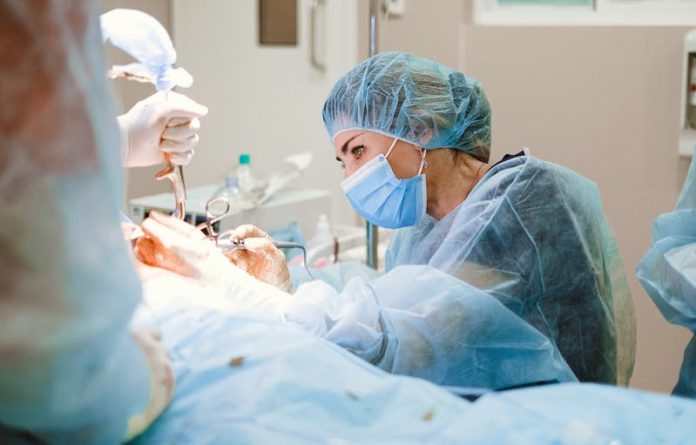
High blood pressure, or hypertension, is a common health condition that affects millions of people worldwide. While many are aware of its long-term risks, such as heart disease and stroke, fewer people realize how high blood pressure can impact surgery outcomes.
If you or someone you know is planning to undergo surgery, it’s important to understand how hypertension could affect the process and what can be done to reduce potential risks.
When you have high blood pressure, your heart has to work harder to pump blood through your body. This extra strain can affect various parts of your cardiovascular system, including your arteries and heart muscles.
If your blood pressure is not well controlled, it can lead to complications during and after surgery. Research has shown that people with uncontrolled high blood pressure are more likely to experience problems during surgery, such as excessive bleeding, stroke, or heart attack.
One of the key ways high blood pressure can complicate surgery is by increasing the risk of bleeding. High blood pressure puts extra pressure on your blood vessels, which can make them more likely to burst or leak during surgery.
This is particularly concerning during procedures that involve delicate or high-risk areas, such as brain or heart surgery. If bleeding occurs, it can make the surgery more difficult and increase the time it takes to recover.
In addition to the risk of bleeding, high blood pressure can also increase the likelihood of a heart attack or stroke during or after surgery. When your blood pressure is high, your heart has to work harder to pump blood, which can lead to an increased demand for oxygen.
If your heart doesn’t get enough oxygen, it can result in a heart attack. Similarly, high blood pressure can cause blood clots to form more easily, which can lead to a stroke if a clot travels to the brain.
Research supports these concerns. A study published in the journal Anesthesiology found that patients with uncontrolled high blood pressure were 2.5 times more likely to experience a major cardiovascular event, such as a heart attack or stroke, during or after surgery compared to those with normal blood pressure.
Another study in the Journal of Hypertension showed that even mildly elevated blood pressure could increase the risk of complications, particularly in older adults.
So, what can be done to minimize the risks associated with high blood pressure during surgery? First and foremost, it’s crucial to manage your blood pressure before the surgery takes place.
This often means working with your doctor to ensure that your blood pressure is within a healthy range. If your blood pressure is too high, your doctor may delay the surgery until it can be better controlled.
They might prescribe medication or suggest lifestyle changes, such as reducing salt intake, increasing physical activity, or losing weight, to help lower your blood pressure.
Another important step is to inform your surgical team about your blood pressure history. This allows them to take extra precautions during the surgery, such as closely monitoring your blood pressure and adjusting anesthesia levels as needed.
In some cases, they may also give you medication before or during the surgery to help keep your blood pressure under control.
After the surgery, it’s important to continue managing your blood pressure to reduce the risk of complications during recovery. This might include taking prescribed medications, following a healthy diet, and attending follow-up appointments with your doctor.
By keeping your blood pressure in check, you can help ensure a smoother recovery and lower the risk of long-term complications.
In conclusion, high blood pressure is a significant factor that can impact surgery outcomes. It can increase the risk of bleeding, heart attack, stroke, and other complications.
However, by taking steps to manage your blood pressure before, during, and after surgery, you can reduce these risks and improve your chances of a successful recovery.
If you have high blood pressure and are planning to undergo surgery, talk to your doctor about how to best manage your condition to ensure the safest possible outcome.
If you care about high blood pressure, please read studies about what to eat and to avoid for high blood pressure, and 12 foods that lower blood pressure.
For more health information, please see recent studies about the connection between potato and high blood pressure, and how to eat your way to healthy blood pressure.
Copyright © 2024 Knowridge Science Report. All rights reserved.



